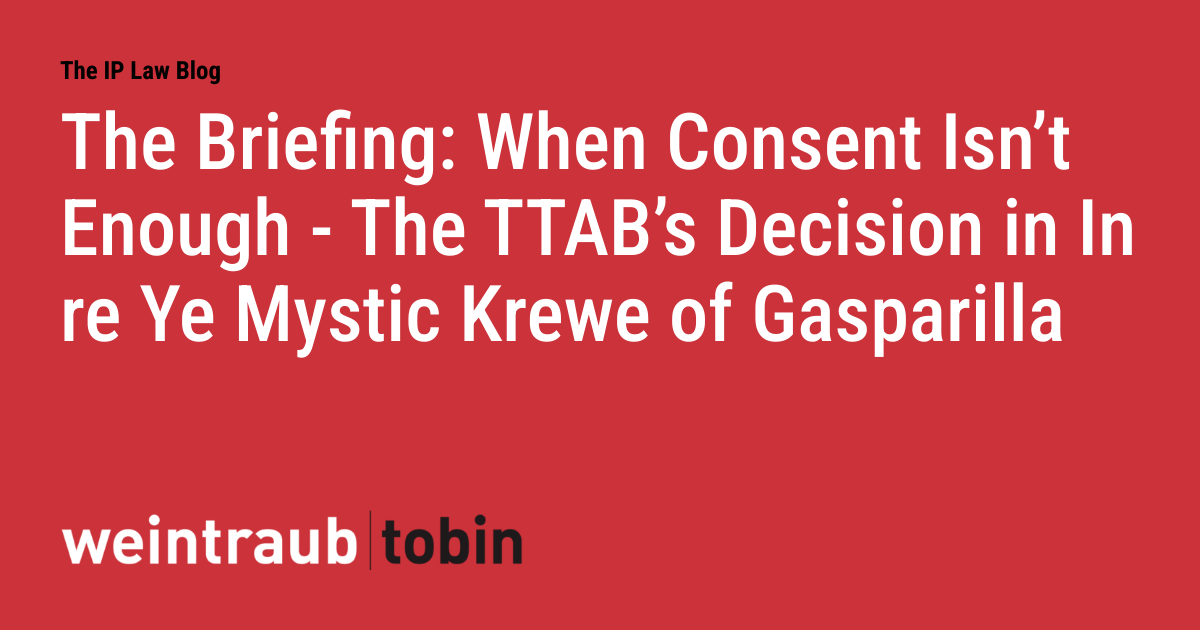
"A consent agreement can be a powerful tool to overcome a USPTO likelihood-of-confusion refusal-but only if it's done right. In this episode of The Briefing, Weintraub Tobin attorneys Scott Hervey and Richard Buckley discuss the TTAB's precedential decision in In re Ye Mystic Krewe of Gasparilla, where the Board rejected a one-page consent agreement as a "naked consent" insufficient to overcome a Section 2(d) refusal."
"They unpack: The history of the GASPARILLA application Why the TTAB said the agreement didn't "show the work" How to draft a consent agreement that will actually persuade the USPTO Don't miss this one-it's a practical guide for anyone working with trademarks or brand portfolios. Watch this episode on YouTube or listen to the podcast episode here."
Consent agreements can overcome USPTO likelihood-of-confusion refusals only when they provide substantive limitations, factual support, and clear legal analysis. The TTAB in In re Ye Mystic Krewe of Gasparilla rejected a one-page, 'naked consent' that lacked detail and did not demonstrate coexistence or scope of use sufficient to resolve Section 2(d) concerns. Successful agreements must 'show the work' by defining geographic and channel-of-trade limitations, evidence of consumer perception, and concrete rights and restrictions. Practical drafting requires tailored clauses, supporting specimens or history of coexistence, and explanations that persuade the examining authority of non-confusing use.
Read at The IP Law Blog
Unable to calculate read time
Collection
[
|
...
]